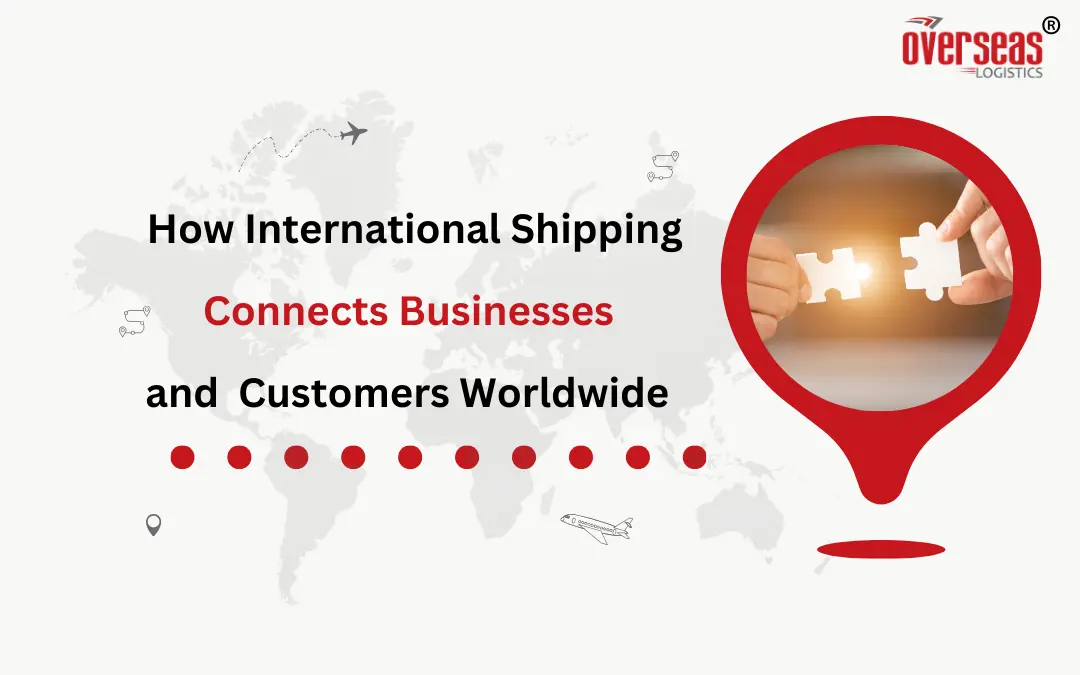In today’s interconnected world, international shipping is pivotal in facilitating the global exchange of goods. It has become the lifeline for businesses aiming to reach customers worldwide, transcending geographical boundaries. Let’s delve into the intricate web of international shipping, exploring its evolution, key players, challenges, benefits to businesses, and the overall impact on customer experience.
Evolution of International Shipping
- Historical Overview – International shipping has a rich history dating back centuries. From the Silk Road to the Age of Exploration, civilisations have sought efficient ways to transport goods across borders. Fast forward to the present, and technological advancements have revolutionised the industry. Today, ships equipped with cutting-edge navigation systems navigate the seas, connecting continents and countries seamlessly.
- Technological Advancements – The integration of technology has been a game-changer in international shipping. From containerisation to real-time tracking, technology ensures the swift and secure movement of goods. Automated systems streamline logistics, reducing errors and delays. These advancements contribute to the efficiency and reliability of international shipping networks.
Key Players in International Shipping
- Shipping Companies – Shipping giants dominate the industry, managing vast fleets that crisscross the globe. These companies provide the infrastructure and resources necessary for the transportation of goods. They play a crucial role in establishing reliable trade routes and maintaining the global flow of products.In today’s interconnected world, international shipping is pivotal in facilitating the global exchange of goods. It has become the lifeline for businesses aiming to reach customers worldwide, transcending geographical boundaries. Let’s delve into the intricate web of international shipping, exploring its evolution, key players, challenges, benefits to businesses, and the overall impact on customer experience.
Logistics and Supply Chain Integration
- Seamless Flow of Goods – International shipping is not just about moving products from point A to point B; it involves a synchronised dance of logistics and supply chain management. An efficient system ensures that goods flow seamlessly through various stages, from manufacturing to delivery. This integration is critical for minimising delays and optimising the overall supply chain.
- Role of Technology – Technology is the backbone of logistics and supply chain integration. From inventory management systems to automated warehouses, businesses leverage technology to enhance efficiency. Real-time data and analytics empower decision-makers to make informed choices, ultimately benefiting the entire shipping process.
Challenges in International Shipping
- Customs and Regulations – Navigating the complexities of customs and regulations is a significant challenge in international express shipping. Each country has its own set of rules, tariffs, and documentation requirements. Businesses must stay informed and compliant to avoid disruptions and delays in the shipping process.
- Environmental Impact – While international shipping connects businesses globally, it also raises environmental concerns. The carbon footprint of shipping contributes to climate change. As the industry grows, there is a pressing need for sustainable practices to mitigate the environmental impact. Businesses are increasingly adopting eco-friendly measures, from alternative fuels to optimising shipping routes.
How International Shipping Benefits Businesses?
- Market Expansion – One of the primary advantages of international shipping is the opportunity for market expansion. Businesses can reach new customers in different countries, tapping into diverse markets. This expansion fosters growth and diversifies revenue streams, reducing dependence on a single market.
- Cost Efficiency – Contrary to common misconceptions, international shipping can be cost-effective. Economies of scale come into play as businesses transport larger quantities of goods. Strategic planning, collaboration with efficient shipping partners, and leveraging technology help businesses optimise costs and enhance their competitiveness in the global market.
Customer Experience in International Shipping
- Speed and Reliability – Customers today expect swift and reliable shipping. International shipping, when executed efficiently, fulfills these expectations. Businesses that prioritise timely deliveries and provide accurate tracking information enhance the overall customer experience, building trust and loyalty.
- Tracking and Transparency – The transparency offered by modern shipping methods contributes to a positive customer experience. Real-time tracking allows customers to monitor the progress of their shipments. This transparency not only improves customer satisfaction but also helps businesses address any issues proactively.
Future Trends in International Shipping
- Sustainable Practices – The future of international shipping lies in sustainability. As environmental awareness grows, businesses are investing in eco-friendly practices. The industry is evolving to minimise its ecological footprint from biofuels to the development of zero-emission vessels.
- Digitalisation and Automation – Digitalisation and automation will continue to shape the landscape of international shipping. Blockchain technology, artificial intelligence, and autonomous vessels are becoming integral to the industry. These innovations enhance efficiency, reduce costs, and ensure the secure transfer of goods.
Tips for Successful International Shipping
- Choosing the Right Shipping Partner – Selecting a reliable shipping partner is paramount for successful international shipping. Consider factors such as experience, reputation, and global reach. A trustworthy partner can navigate challenges and provide solutions that align with your business goals.
- Understanding Tariffs and Taxes – Navigating the maze of tariffs and taxes is crucial for cost-effective international shipping. Stay informed about the regulations of each destination country and factor these costs into your pricing strategy. This understanding ensures a smooth and financially viable shipping process.
Case Studies
- Success Stories in Global Trade – Examining successful case studies provides valuable insights into navigating the complexities of international shipping. Businesses that have mastered the art of global trade offer lessons for others looking to expand their reach.
- Lessons Learned from Challenges – Challenges in international shipping are inevitable. Learning from past challenges is essential for continuous improvement. By understanding the pitfalls and finding innovative solutions, businesses can adapt and thrive in the global market.
Conclusion
In conclusion, international shipping is the backbone of global commerce, connecting businesses with customers worldwide. From its historical roots to the technological advancements of today, the industry continues to evolve. While challenges exist, the benefits, including market expansion and cost efficiency, make international shipping a crucial component of the modern business landscape.
FAQs
How long does international shipping usually take?
The duration of international shipping varies based on distance, shipping method, and customs procedures. It can range from a few days to several weeks.
What are the common challenges faced by businesses in global shipping?
Common challenges include navigating customs and regulations, ensuring timely deliveries, and addressing environmental concerns.
How can businesses reduce the environmental impact of their shipping practices?
Businesses can adopt sustainable practices, such as using eco-friendly packaging, optimising shipping routes, and exploring alternative fuels.
Are there any specific regulations to consider when shipping internationally?
Yes, each country has its own set of regulations, tariffs, and documentation requirements. Businesses need to stay informed and compliant.
How does technology contribute to the efficiency of international shipping?
Technology enhances efficiency through real-time tracking, automation of logistics processes, and data analytics, empowering businesses to make informed decisions.

